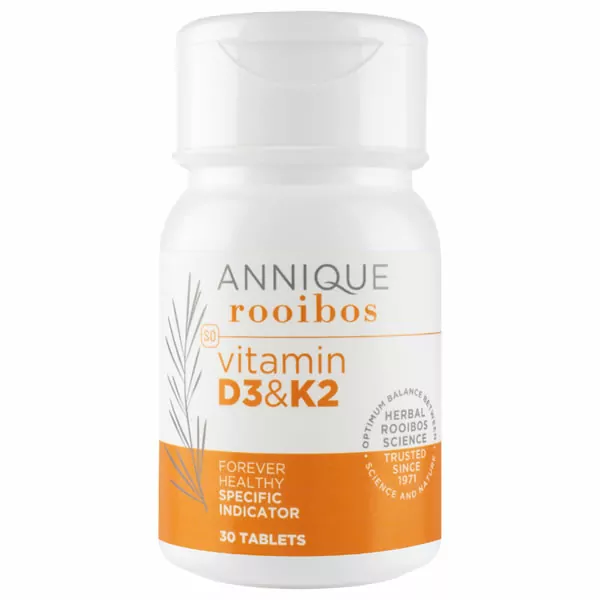Overview
Rooibos is a fragrant, caffeine-free tea. It is made from the leaves and stems of a tree called Aspalathus linearis. This tree grows in South Africa, where rooibos tea is the national drink.
Rooibos is used for hay fever, preventing cancer, preventing heart disease, indigestion (dyspepsia), and other conditions, but there is no good scientific evidence to support these uses.
Vitamin C, found abundantly in rooibos tea, is not produced by the human body. Therefore, indulging in this antioxidant-rich beverage can boost immune system, aid in collagen production, and promote healthy skin and hair.
Side Effects
When taken by mouth: Rooibos is LIKELY SAFE for most people when used as a beverage in normal food amounts. But drinking large amounts of rooibos tea, such as 10 cups per day, for over a year can cause liver problems in some people.
There isn’t enough information available to know if rooibos is safe to use as a medicine.
Interactions
Moderate Interaction
Be cautious with this combination
Medications for high blood pressure (ACE inhibitors) interacts with ROOIBOS
Rooibos might have a similar effect to ACE inhibitors. Taking rooibos with ACE inhibitors might cause increased effects and side effects.
The ACE inhibitors used for high blood pressure include benazepril (Lotensin), captopril (Capoten), enalapril (Vasotec), lisinopril (Prinivil), quinapril (Accupril), ramipril (Altace), and others.
Medications changed by the liver (Cytochrome P450 1A2 (CYP1A2) substrates) interacts with ROOIBOS
Some medications are changed and broken down by the liver. Rooibos might increase how quickly the liver breaks down some medications. Taking rooibos along with some medications that are changed by the liver can decrease the effectiveness of some medications. Before taking rooibos, talk to your healthcare provider if you take any medications that are changed by the liver.
Some of these medications that are changed by the liver include clozapine (Clozaril), cyclobenzaprine (Flexeril), fluvoxamine (Luvox), haloperidol (Haldol), imipramine (Tofranil), mexiletine (Mexitil), olanzapine (Zyprexa), pentazocine (Talwin), propranolol (Inderal), tacrine (Cognex), zileuton (Zyflo), zolmitriptan (Zomig), and others.
Medications changed by the liver (Cytochrome P450 2C19 (CYP2C19) substrates) interacts with ROOIBOS
Some medications are changed and broken down by the liver. Rooibos might increase how quickly the liver breaks down some medications. Taking rooibos along with some medications that are broken down by the liver can decrease the effectiveness of your medication. Before taking rooibos, talk to your healthcare provider if you take any medications that are changed by the liver.
Some medications that are changed by the liver include amitriptyline (Elavil), carisoprodol (Soma), citalopram (Celexa), diazepam (Valium), lansoprazole (Prevacid), omeprazole (Prilosec), phenytoin (Dilantin), warfarin, and many others.
Medications changed by the liver (Cytochrome P450 2C9 (CYP2C9) substrates) interacts with ROOIBOS
Some medications are changed and broken down by the liver. Rooibos might increase how quickly the liver breaks down some medications. Taking rooibos along with some medications that are broken down by the liver can decrease the effectiveness of your medication. Before taking rooibos, talk to your healthcare provider if you take any medications that are changed by the liver.
Some medications that are changed by the liver include celecoxib (Celebrex), diclofenac (Voltaren), fluvastatin (Lescol), glipizide (Glucotrol), ibuprofen (Advil, Motrin), irbesartan (Avapro), losartan (Cozaar), phenytoin (Dilantin), piroxicam (Feldene), tamoxifen (Nolvadex), tolbutamide (Tolinase), torsemide (Demadex), warfarin (Coumadin), and others.
Medications changed by the liver (Cytochrome P450 2D6 (CYP2D6) substrates) interacts with ROOIBOS
Some medications are changed and broken down by the liver. Rooibos might decrease how quickly the liver breaks down some medications. Taking rooibos along with some medications that are changed by the liver can increase the effects and side effects of your medication. Before taking rooibos, talk to your healthcare provider if you take any medications that are changed by the liver.
Some medications that are changed by the liver include amitriptyline (Elavil), clozapine (Clozaril), codeine, desipramine (Norpramin), donepezil (Aricept), fentanyl (Duragesic), flecainide (Tambocor), fluoxetine (Prozac), meperidine (Demerol), methadone (Dolophine), metoprolol (Lopressor, Toprol XL), olanzapine (Zyprexa), ondansetron (Zofran), tramadol (Ultram), trazodone (Desyrel), and others.
Medications changed by the liver (Cytochrome P450 3A4 (CYP3A4) substrates) interacts with ROOIBOS
Some medications are changed and broken down by the liver. Rooibos might increase how quickly the liver breaks down some medications. Taking rooibos along with some medications that are broken down by the liver can decrease the effectiveness of some medications. Before taking rooibos talk to your healthcare provider if you are taking any medications that are changed by the liver.
Some medications changed by the liver include atorvastatin (Lipitor), lovastatin (Mevacor), clarithromycin (Biaxin), indinavir (Crixivan), sildenafil (Viagra), triazolam (Halcion), ketoconazole (Nizoral), itraconazole (Sporanox), fexofenadine (Allegra), midazolam (Versed), and many others.
Atorvastatin (Lipitor) interacts with ROOIBOS
Some research shows that rooibos might increase levels of atorvastatin in the blood. This could increase the effects and side effects of atorvastatin. Before taking rooibos, talk to your healthcare provider if you take atorvastatin (Lipitor).
Special Precautionsand Warnings
When taken by mouth: Rooibos is LIKELY SAFE for most people when used as a beverage in normal food amounts. But drinking large amounts of rooibos tea, such as 10 cups per day, for over a year can cause liver problems in some people.
There isn’t enough information available to know if rooibos is safe to use as a medicine. Pregnancy and breast-feeding: There isn’t enough reliable information to know if rooibos is safe to use when pregnant or breast-feeding. Stay on the safe side and avoid use.
Dosing
The appropriate dose of rooibos depends on several factors such as the user’s age, health, and several other conditions. At this time there is not enough scientific information to determine an appropriate range of doses for rooibos. Keep in mind that natural products are not always necessarily safe and dosages can be important. Be sure to follow relevant directions on product labels and consult your pharmacist or physician or other healthcare professional before using.

